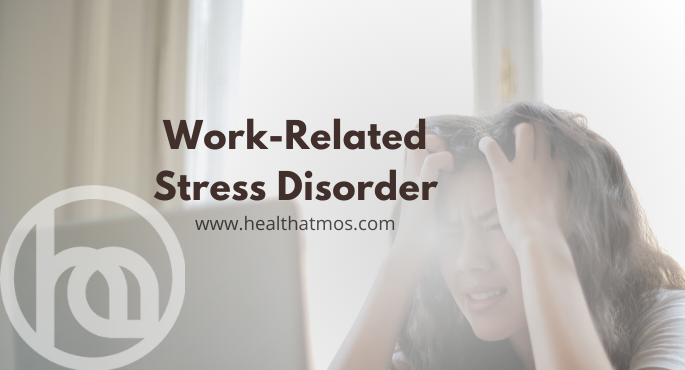Work-related Stress Disorder

Workplace Stress:
All employees can relate to stress in the workplace, be it employed or an entrepreneur. Work Related Stress Disorder (WRSD) occurs when increased work demands and pressures cannot be accomplished and starts affecting an employee physically, mentally and emotionally.
What are the main work-related stressors?
The following issues have been identified as potential stressors at workplaces. A risk management approach can identify which ones exist in your workplace and what causes them. They include:
- Organization culture
- Bad management practices
- Job content and demands
- Physical work environment
- Relationships at work
- Change of management
- Lack of support
- Role conflict
- Trauma
What are the other causes of work related stress?
Some of the factors that commonly cause work-related stress are:
- Long working hours
- Heavy workload
- Changes within the organization
- Tight deadlines
- Changes to duties
- Job insecurity
- Lack of autonomy
- Boring work
- Insufficient skills for the job
- Over-supervision
- Inadequate working environment
- Lack of proper resources
- Lack of equipment
- Few promotional opportunities
- Harassment
- Discrimination
- Poor relationships with colleagues or bosses
What are the Symptoms of Work Related Stress?
The symptoms or physical signs of stress at work can be identified as:
- Headaches
- Fatigue/tiredness/low energy
- Weight gain/weight loss
- Breathlessness
- Muscle twitching/muscle stiffness
- Insomnia
WRSD affects a person’s mind too. When an employee is affected mentally, they will exhibit the following symptoms:
- Negativity
- Worrying
- Nightmares
- Indecisiveness/ Hasty decision making
- Impaired – judgement
- Hasty decisions
- Confusion
When an employee is affected emotionally, they will exhibit the following symptoms:
- Depression
- Loss of confidence
- Anger
- Mood swings
- Irritability
- Lack of interest
- Anxiety
- Detachment
WRSD also affects an employee’s behavior. The person affected by WRSD may have the following behavioral traits:
- Loss of appetite
- Restlessness
- Clumsiness
- Inclination to addictions like smoking and drinking
- Loss of sex drive
What are the Benefits of Preventing Stress in the Workplace?
- Fewer cases of poor mental and physical health
- Fewer injuries, less illness and lost time
- Reduced usage of sick leave, absences and staff turnover
- Increased productivity
- Greater job satisfaction
- Increased work engagement
- Reduced costs to the employer
- Improved employee health and community wellbeing
Work-related stress is a Management Issue:
It is essential for employers to recognize work-related stress as a significant health and safety issue. A company should take steps to ensure that employees are not subjected to unnecessary stress, including:
- Ensure a safe working environment
- Make sure that all are trained for their job
- Discuss issues with employees, and take appropriate action whenever possible
- Create a stress management policy
- Organize to have a human resources manager
- Cut down on the need for overtime by adjusting duties
- Take into account the personal lives of employees and recognize that home demands and work demands may clash
- Seek advice from health professionals, if necessary
Self-help for the Individual:
A person suffering from work-related stress can help themselves in a number of ways, such as:
- Think about the changes you have to make at work to reduce your stress levels and then take action. You may also need the cooperation of others.
- Discuss your concerns with your employer or human resources manager.
- Make sure you are well organized. List your tasks in order of priority. Schedule the difficult tasks of each day first thing in the morning.
- Take care of your health by exercising regularly and maintaining a healthy diet.
- Consider the benefits of regular relaxation. You could try meditation or yoga.
- Don’t take out your stress on your loved ones but tell them about your work related problems and ask for their support and suggestions.
- Avoid excessive drinking and smoking.
- If work related stress continues to be a problem, seek advice from a career counsellor or psychologist.
Employees need to be aware of overcoming stress at work. An employer could arrange corporate wellness programs for their employees on how to deal with work stress or stress management.
An employer should keep in mind that if their employees are happy and healthy, they can work to the best of their abilities. This will result in increased productivity and satisfied customers. Lastly, if the customers are satisfied it will result in more business.
To know your employee’s complete health and wellness status, you can choose a corporate health checkup designed by Health Atmos. If you want to know more about preventive checkup package, fill in the form and our executive will help you with an exclusive plan for you at the earliest. Stay Healthy! Stay Safe!
